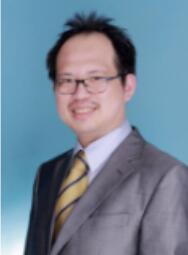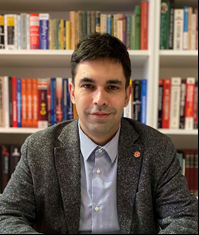Prof. Victor Chang, Aston University, United Kingdom

Prof. Victor Chang is currently a Professor of Business Analytics at Aston Business School, Aston University, UK. He was a Professor of Data Science and Information Systems at SCEDT, Teesside University, Middlesbrough, UK, between September 2019 and May 2022. He was a Senior Associate Professor, Director of Ph.D. (June 2016-May 2018) and Director of MRes (Sep 2017-Feb 2019) at International Business School Suzhou (IBSS), Xi’an Jiaotong-Liverpool University (XJTLU), Suzhou, China, between June 2016 and August 2019. He was also a very active and contributing key member at Research Institute of Big Data Analytics (RIBDA), XJTLU. He was an Honorary Associate Professor at University of Liverpool. Previously he was a Senior Lecturer at Leeds Beckett University, UK, between Sep 2012 and May 2016. Within 4 years, he completed Ph.D. (CS, Southampton) and PGCert (Higher Education, Fellow, Greenwich) while working for several projects at the same time. Before becoming an academic, he has achieved 97% on average in 27 IT certifications. He won a European Award on Cloud Migration in 2011, IEEE Outstanding Service Award in 2015, best papers in 2012, 2015 and 2018, the 2016 European special award and Outstanding Young Scientist 2017. He is a visiting scholar/Ph.D. examiner at several universities, an Editor-in-Chief of IJOCI & OJBD journals, former Editor of FGCS, Associate Editor of IEEE TII, JGIM, IJBSR, IJEBM & Cyber Security & Apps. He's also an Editor of Information Fusion, IDD and Scientific Reports journal, a founding chair of two international workshops and founding Conference Chair of IoTBDS and COMPLEXIS since Year 2016. He is the founding Conference Chair for FEMIB since Year 2019. He published 3 books as sole authors and the editor of 2 books on Cloud Computing and related technologies. He gave 30 keynotes at international conferences. He is widely regarded as one of the most active and influential young scientists and experts in IoT/Data Science/Cloud/security/AI/IS, as he has experience developing 10 different services for multiple disciplines.
Title: To be updated
Prof. Nebojša Bačanin-Džakula, Singidunum University, Serbia

Nebojsa Bacanin received his first Ph.D. degree in 2014 from the domain of applied computer science, and second Ph.D. degree from Faculty of Mathematics, University of Belgrade in 2015 (study program Computer Science, average grade 10,00). He started University career in Serbia 15 years ago at Graduate School of Computer Science in Belgrade. He currently works as an associate professor and as a Vice-Rector for Scientific Research at Singidunum University, Belgrade, Serbia. He teaches 16 courses on bachelor, master and Ph.D. studies from the domain of computer science.
He is involved in scientific research in the field of computer science and his specialty includes stochastic optimization algorithms, swarm intelligence, soft-computing and optimization and modeling, as well as artificial intelligence algorithms, swarm intelligence, machine learning, image processing and cloud and distributed computing. He has published more than 100 scientific papers in high quality journals and international conferences indexed in Clarivate Analytics JCR, Scopus, WoS, IEEExplore, and other scientific databases, as well as in Springer Lecture Notes in Computer Science and Procedia Computer Science book chapters. He has also published 2 books in domains of Cloud Computing and Advanced Java Spring Programming.
He is a member of numerous editorial boards, scientific and advisory committees of international conferences and journals. He is a regular reviewer for international journals with high Clarivate Analytics and WoS impact factor such as Journal of Ambient Intelligence & Humanized Computing, Soft Computing, Applied Soft Computing, Information Sciences, Journal of Cloud Computing, IEEE Transactions on Computers, IEEE Review, Swarm and Evolutionary Computation, Knowledge-based Systems, Future Generation Computer Systems, Computer and Information Sciences, SoftwareX, Neurocomputing, Operations Research Perspectives, etc. In 2020 he was designated by prestigious Stanford University list as top 2% researchers in the world.
Title: To be updated
